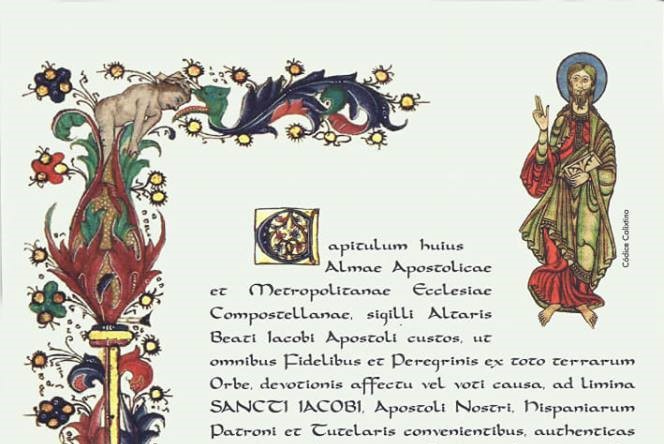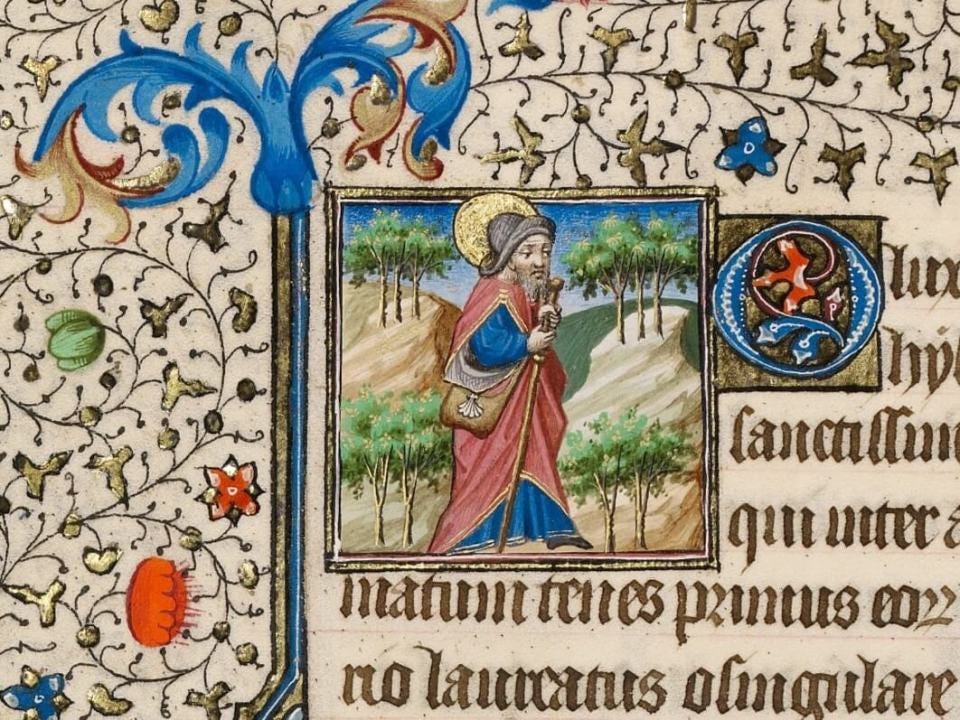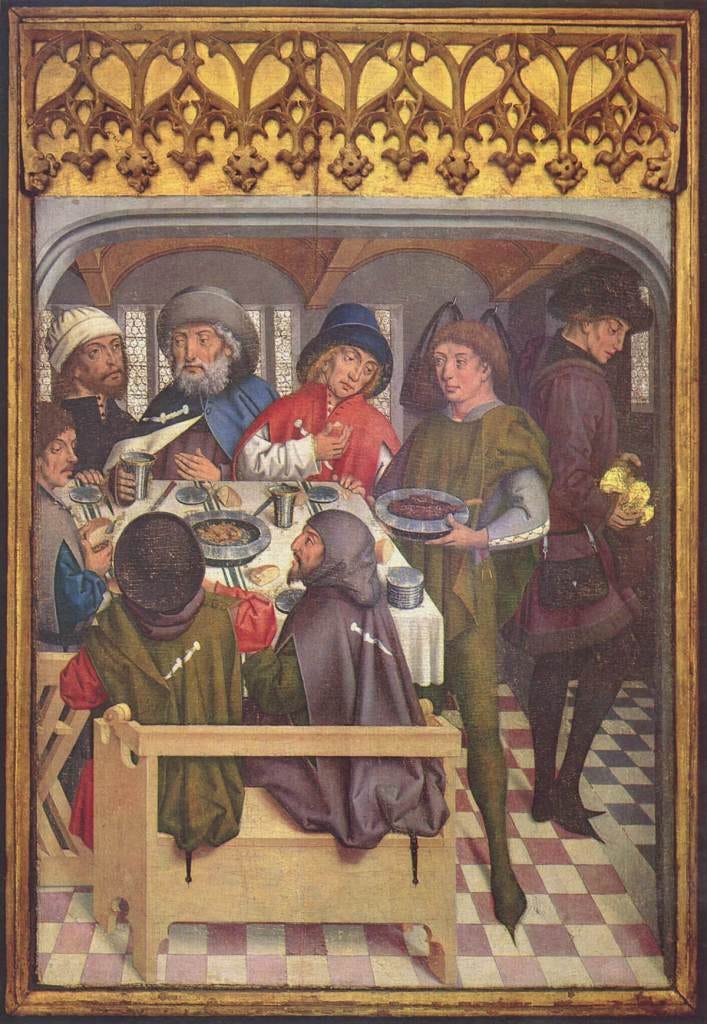We are currently working on an upcoming article, but wanted to share a brief “intermezzo” post with you. If you find yourself “Camino Curious” after reading it, please join us for a live zoom meeting on Sunday, February 16th at 2 pm EST. Mark your calendar, and download your link here.
Today Peco and I walked to Canada’s largest market, a 40-min snowy trek that we regularly make on Saturday mornings. The temperature was -20 C (-4F), and our faces felt frozen but alive. It is an inconvenient walk, especially in this weather, and we could be there by car in five minutes.
Why do we bother? This simple weekly act is part of a walking rebellion against speed.
In North America especially, most of us suffer from a certain degree of “hurry sickness”. In preparation for our upcoming Camino pilgrimage, I read Russ Eanes’ book The Walk of a Lifetime and was struck by his apt description of the “boxed-in world of contemporary American society” that he found difficult to escape:
My time became parsed into days of the weeks, the hours of the day, the appointments on my calendar and the items on my to-do list.
…I had been convinced for decades that the pace of my life —along with most Americans—was too fast, too busy, and that I needed more time and space to appreciate what was going on around me, to listen more deeply to God through the “everyday”.
I first became aware that I suffered from something called “hurry sickness” about 15 years ago…
Constantly speeding up daily activities; a haunting fear that there are just not enough hours in the day to do what needs to be done.
Reading fast; talking faster, and, when listening, nodding faster to encourage the talker to accelerate.
Inwardly chafing whenever I have to wait (as in a line in the store).
Multi-tasking.
Superficiality —trading wisdom for information; exchanging depth for breadth. I felt at times that my life was a “mile-wide and an inch deep,” to quote a friend.
Sunset fatigue. Those who need our love the most, theose to whom we are most committed, end up getting the leftovers of our time and energy. Sunset fatigue is being too tired, or too drained, or too preoccupied, to love the people to whom we have made the deepest promises.
A loss of gratitude and wonder.
Even with deliberate effort in taking life more slowly, I recognize myself in these symptoms.
Slowing down is counter-cultural, especially when traffic speeds by you. It seems impossible to imagine that society as a whole would recognize that we are simply thinking, speaking, and moving too fast.
There is one place, where I have experienced everyone slowing down together — walking — resulting in the most unusual communal resetting of life’s pace painted vividly by Eanes:
The Camino is a community on foot, moving at a rate of five kilometers an hour, a river of humanity that flows, ebbs, floods, trickles, meanders...This community includes pilgrims, hospitaleros, café owners, the people who live in the cities and towns along the Way, the people living ordinary, regular lives along an historic route that is anything but ordinary; the bicyclists who nearly hit you as they pass by, the slow strollers, the people limping from blisters, aching with each step, the fast walkers who will do 40 or 50 kilometers in a day; singles, couples, old, young, teenagers, retirees, people of every color, from every continent and speaking dozens of languages. All sharing a common road, part of a community walking with different motivations, but all walking together. I have never experienced a community quite like this.
Many of our readers have commented over the last couple of years that they often feel alone in questioning the norm, that they feel that they are the only ones who have “rejected the Machine”, deleted social media, and endeavor to lead a slower more “old-fashinoned” life. We hope that our pilgrimage group can serve to bring the ideas we share out of the digital realm into our shared experience. As Eanes describes it:
Solitude is a spiritual experience, but so is community. Combining the two is what makes the Camino a unique experience.…Most people enjoy the Camino especially because of the community. With average lives so private and individualized, the find the common experience refreshing.
…I could have only achieved it through walking The Way, especially this one, this time. It’s a way of leaving the world and recovering your native sensitivities. It’s not just me either —pilgrimage does that to people. It’s a scenario sustained by simple, ritual gestures in a historic framework that requires many kilometers and many steps —steps faithful to a promise, or to an aspiration. It’s a determination to give the best of oneself, on a Way that is so much more than the stages in an itinerary. It’s an opportunity, a change, a dream, a comfort, perhaps for a few days, a different way of being in a world that’s different from the ordinary but still very real.
We hope that these reflections sparked some inspriation in you to join us in our continued “walking rebellion”1(even if it is through snow and cold) and restore not only your mind at three miles an hour, but also discover a simple cure for our common “hurry sickness”.
If this post has made you “Camino Curious”, please join us for a live meeting on Sunday, February 16th at 2pm EST, when we will talk all things Camino!
To read more details about our planned Pilgrimage out of the Machine see our post:
Download the brochure here:
Or register directly here:
Once you have walked the Camino, you will walk it every day for the rest of your life.
Russ Eanes, The Walk of a Lifetime

Further Reading on Pilgrimage:
Russ Eanes, The Walk of a Lifetime
Hilaire Belloc, The Path to Rome
Arthur Paul Boers, The Way Is Made by Walking - A Pilgrimage Along the Camino de Santiago
will shortly be starting his new series The Sunday PilgrimageOne is the way that Christian devotion has for so long been woven into the landscape. The other is the power of the Christianity of the early centuries - a power that has mostly been lost, but which can still speak to us through the ruins of those places. Digging around in these old sites, for these reasons, is not just architectural or historical rummaging for me. It is a quest for my - our - spiritual heritage, and a pointer, maybe, to where it could go in the future.
Also, it’s my idea of a good time.
…Every week I will bring you the story of a place, its past, its practice and its people. It will be free to read for everyone, and you are all invited. Let’s see where the road takes us.
The pilgrimage begins this winter.
Have you walked on the Camino or another pilgrimage? What was your experience?
Is walking a regular part of your life?
What are some of your favorite books, films, or quotes about walking?
We’d love to hear from you! Please share your questions, thoughts, and reflections in the comments section!
Don’t forget to go tech-naked, use naked tech, or power off your phone while walking.










Ah man, I so wish I was leading a trip that would intersect with you guys at some point. I'll be heading back to the States the day before you all start.
The Camino truly is a spiritual, physical, full-person experience of a lifetime. I'm blessed to have done it twice now leading two different groups; the first time was everything I'd always wanted it to be, the second was everything I needed it to be, and the community on both was incredible. I think its going to be a great experience for this whole community. I'll be praying for you guys while just a few days ahead on the route.
My reflection on my first Camino is here: https://open.substack.com/pub/ryanpbrady/p/buen-camino?r=22x7bz&utm_campaign=post&utm_medium=web&showWelcomeOnShare=false
It may be edifying to people so set on engagement with the Real as you all are.
Thank you
Remember to believe☘️😌🌳🕊️
We never pray alone....
.....grace and peace to you! 🕯️📿